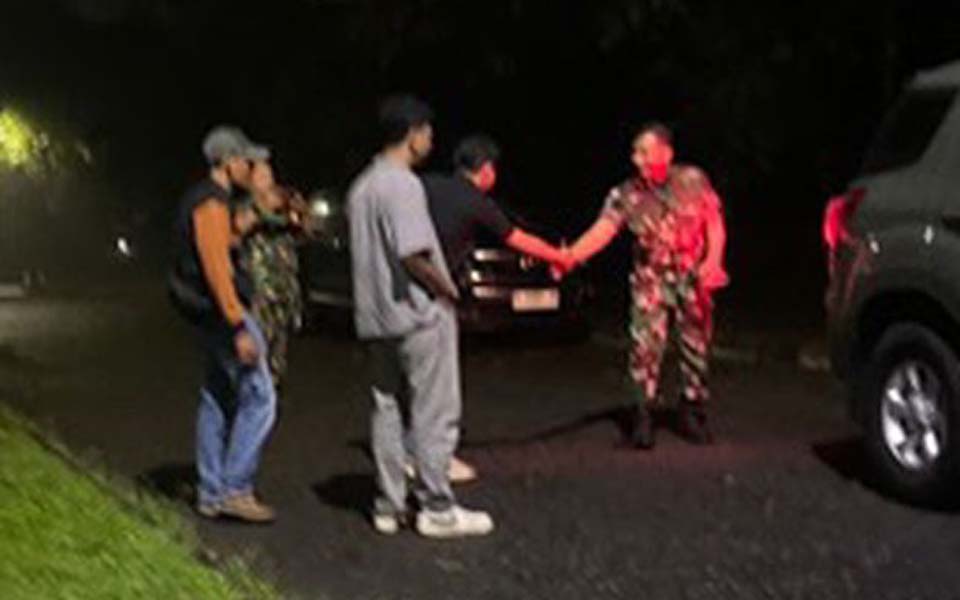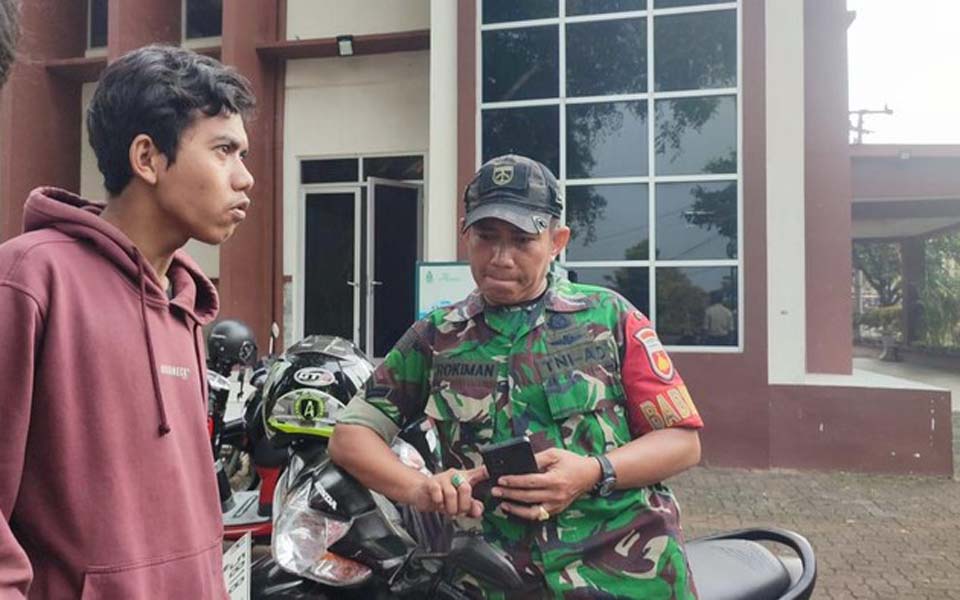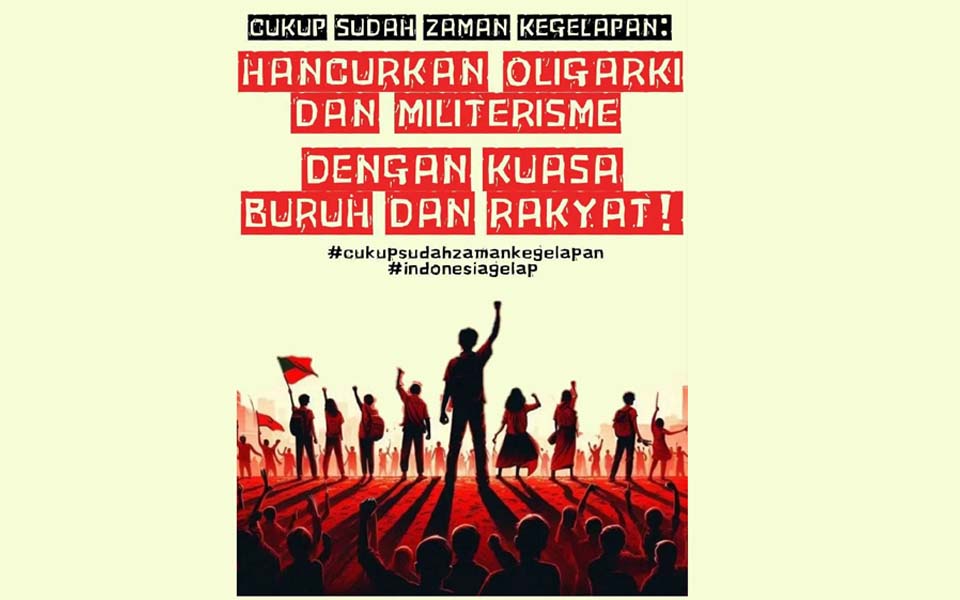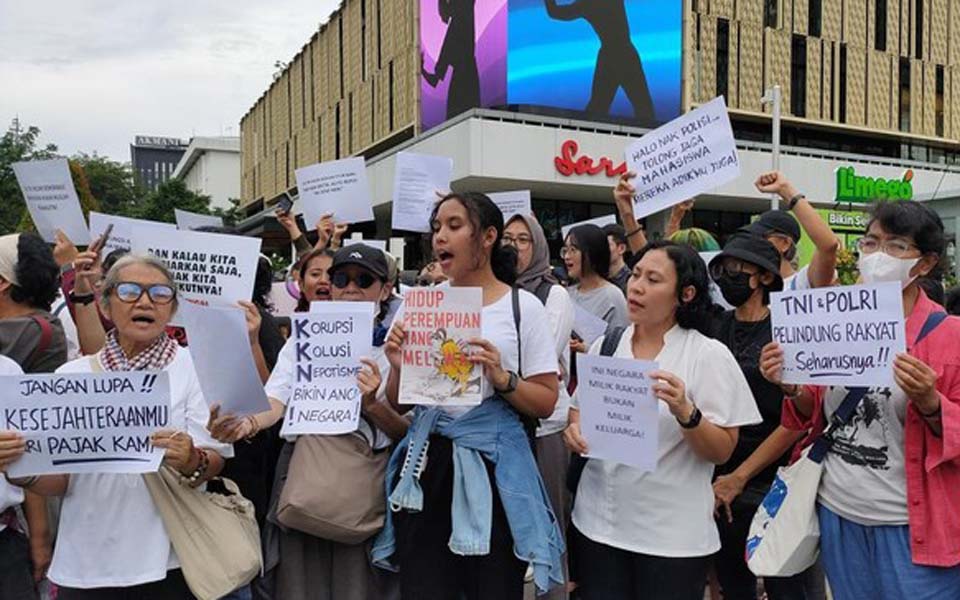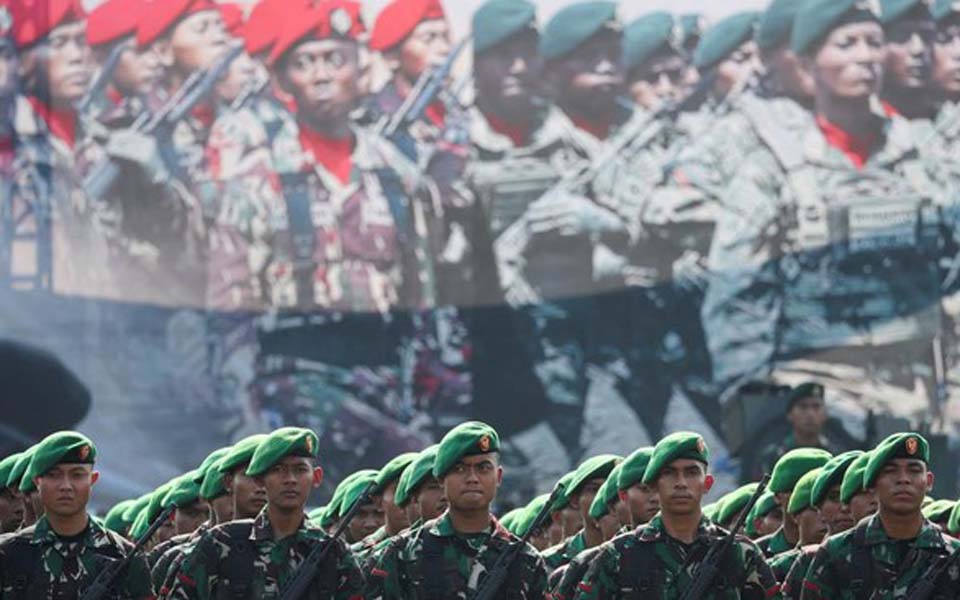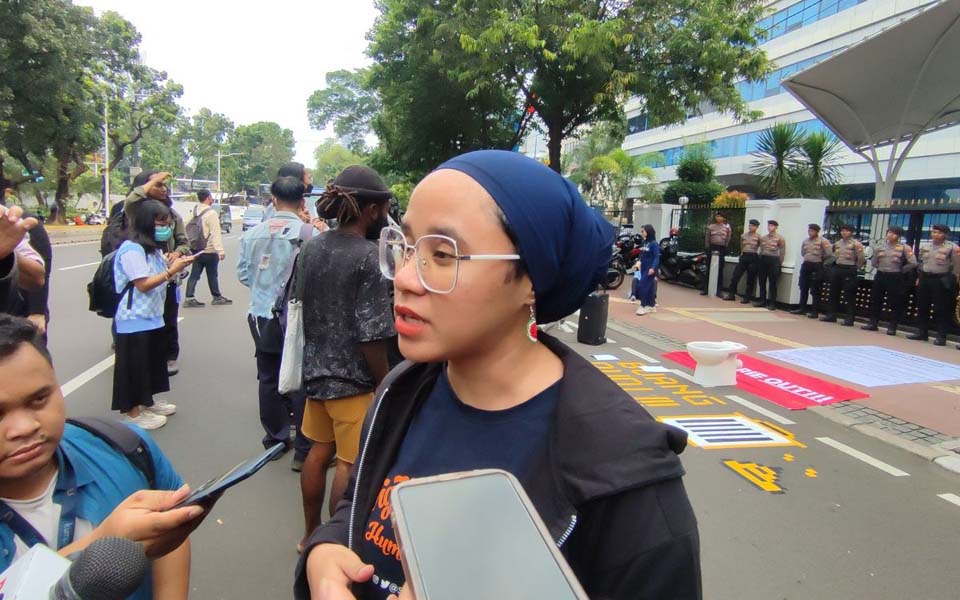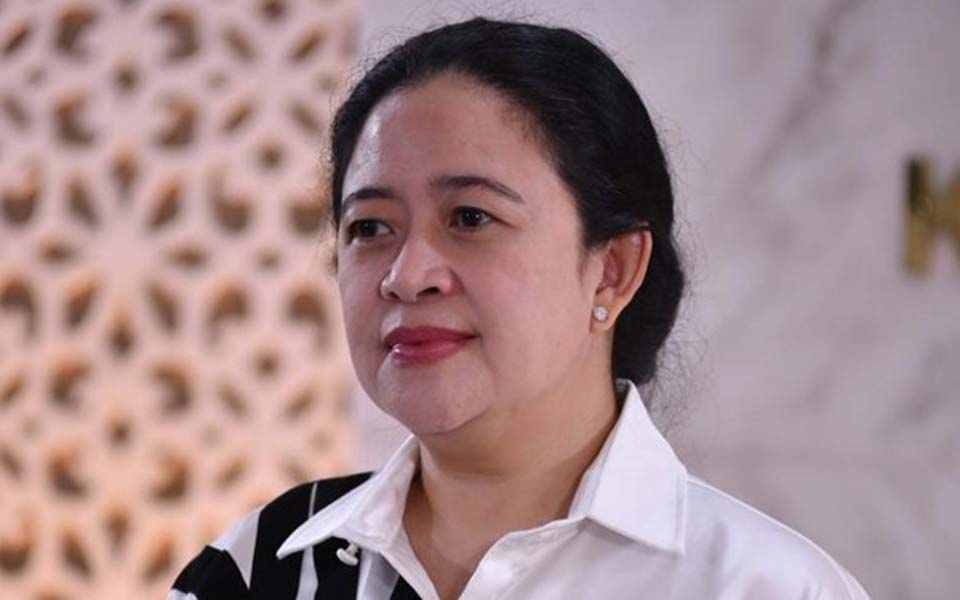Jakarta, CNN Indonesia – Indonesian Human Rights Watch Imparsial is warning the government that military training for civilians in the Reserve Component (Komcad) will create new problems, one of which is horizontal conflicts between communities.
“Because the essence of what is being done by Kemham (the Defense Ministry) on the pretext of forming a Komcad, is of course when for example those to take part in this training return to society, particularly with regulations which are unclear, it could give rise to new militia [groups]”, said Impartial Deputy Director Ghufron Mabruri at the Impartial office in Jakarta on Wednesday March 11.
The Komcad program was initiated by the Defense Ministry’s Defense Potential Directorate General based on Law Number 23/2019 on the Management of National Resources (UU PSDN). Komcad plans to open registration for civilians to obtain military training in July this year.
According to Mabruri, the formation of new civilian militia groups has the potential to reinforce vigilante practices in civil society.
Vigilantes are groups which take the law into their own hands. Mabruri warned that vigilantism will increase existing problems in the midst of incidents of intolerance and violence which are already taking place.
Based on this, Imparsial is urging the government to postpone the establishment of Komcad. The other reason, according to Imparsial, is that establishing Komcad is not part of the priority agenda.
“If the government’s goal is to strengthen the defense sector so it’s more professional, strong and modern, then developing the main component, the TNI (Indonesian military) should be the priority”, said Imparsial researcher Hussein Ahmad.
Ahmad believes that what the TNI needs at the moment is restructuring and reform. He cited for example the problem of improving soldiers’ welfare, modernising weapon systems (alutsista) and improving professionalism.
Furthermore, Ahmad says that the impression is that the government is being secretive about the Komcad military training program because the process of enacting the law was relatively quick.
Ahmad says that after President Joko “Jokowi” Widodo submitted the initial draft to the House of Representatives (DPR) on July 17, 2019, it only took three months for it to be ratified.
“Based on all of this we can see that it is as if the government wants to conceal the process of establishing the regulations on Komcad”, he said.
According to Ahmad, the public was not involved in the drafting of the conscription program during the deliberations on the PSDN Law related to Komcad. Ahmad said that the involvement of the public is important because Komcad will involve members of the public.
“And what about the money? Where will it be sourced from? Then what about the training process? What if later there is potential for human rights violations if Komcad has already been established”, he said.
“Then this will involve weapons [training]. That’s military training is. Imagine, civilians will get military training, but civil society groups were never involved. All of a sudden there will be weapons training, shooting, bang bang bang”, he said.
Komcad is regulated under the UU PSDN which states that the Reserve Components is a national resource which is prepared for deployment through mobilisation in order to augment and reinforced the strength and capacity of the main component.
Under article 28 of the law, it states that Komcad is made up of citizens, natural resources, artificial resources and national facilities and infrastructure.
Unclear threats
Imparsial coordinating investigator Ardi Manto Adiputra has highlighted the classification of threats which are regulated under Article 4 Paragraph (2) of the UU PSDN where it specifies three kinds of threats, namely military, non-military and hybrid threats.
In Article 4 Paragraph (3) it states that the threats referred to in Paragraph (2) can be created by, among other things, aggression, terrorism, communism, separatism and threats which endanger national sovereignty.
According to Adiputra, these three types of threats are not explained in detail and have no benchmark so they could give rise to many interpretations. He gives the example of hybrid threats and threats which endanger national sovereignty.
“Now, this is open to multiple interpretations. Anyone could be considered to threaten national sovereignty with this unclear interpretation”, said Adiputra.
Adiputra is concerned that with these unclear classifications it could be used as a justification for persecution in society. (thr/wis)
[Translated by James Balowski. The original title of the article was “Imparsial Khawatir Komcad Ciptakan Milisi Sipil Baru”.]






